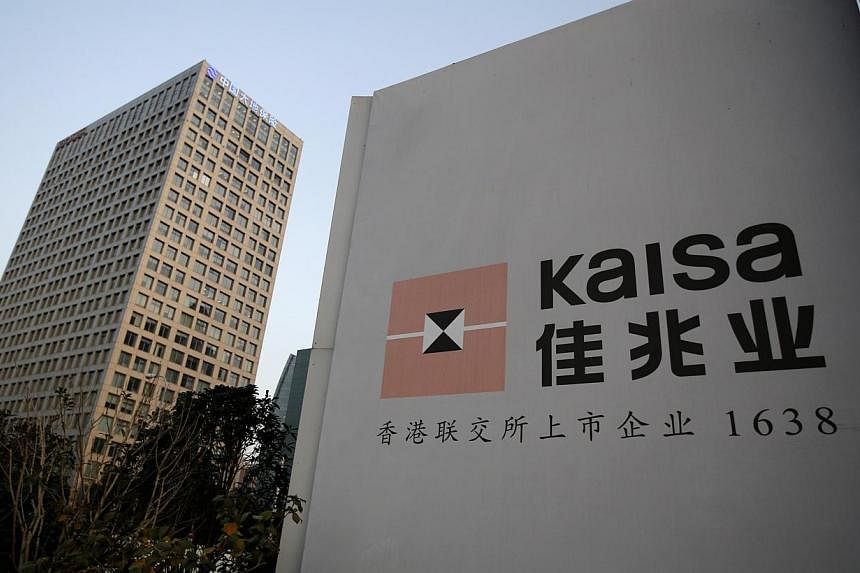NEW YORK (Bloomberg) - Kaisa Group Holdings, whose bonds are listed in Singapore, proposed a restructuring plan for its onshore debt that would cut its interest costs and give it as many as six years to repay the borrowings as it seeks to avoid a default.
The Shenzhen, China-based property developer is looking to extend the maturity date and reduce the interest rate it pays on 12.4 billion yuan (S$2.70 billion) of debt due to banks and 35.6 billion yuan owed to non-bank financial institutions in mainland China as of Dec. 31, according to a company statement to the Hong Kong stock exchange.
The company, which met with lenders on March 2 to discuss the plan, seeks to cut the interest on the obligations to as little as 70 per cent of the base rate set by the People's Bank of China and to extend the debt's due date, according to the filing.
Kaisa's US$400 million of 9 per cent bonds due in June 2019 last traded at 60 cents on the dollar as of Feb. 26, according to Trace, the Financial Industry Regulatory Authority's bond- price reporting system. The notes, which traded at 101.5 cents on the dollar in December, slumped as low as 30.2 cents in early January.
Wu Jiesi, M&A and restructuring chief at Sunac China Holdings Ltd., a homebuilder that is looking to buy Kaisa, last month urged lenders to allow suspension of debt payments to grant Kaisa time to discuss a restructuring plan. Meeting interest and principal obligations might derail restructuring talks because Kaisa can't honor all payments, Wu said.
Kaisa missed a coupon payment in January on its dollar bonds due in 2020. The company, which is the target of an anti-graft investigation, avoided becoming the first Chinese homebuilder to default after it met the obligation in February at the end of a 30-day grace period. Sunac Chairman Sun Hongbin said then that he needed time to make revisions to some debt terms.
Shares of Kaisa resume trading in Hong Kong on Tuesday.

